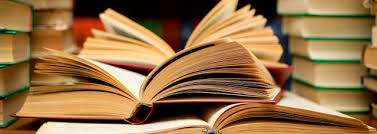April 2018

I search online, but I do not get much useful answers. I conclude that I can only find it out by myself. In the past eight months, I have read over 15 books on investing and self-improvement. And, I have been developing a routine of reading research articles and newspapers. There are a few tips that have improved my reading efficiency. In this post, I would like to share them with you.
- Why read and what to obtain from the reading?
Two weeks ago, I got another challenge to parallelize a code that I had developed. I found an attractive open-source solver to tackle my problem. The task was a little bit harder than the previous one, and I had to read a 100-page manual to get familiar with the solver.
I changed my approach this time. I invested some time to think, plan, and find possible challenges. Then, I read the manual with goals in mind. Then, I implement the method.
In detail, I evaluated how much time I might need to implement the solver. I gave myself a few days to think about main challenges that could occur. Keeping those challenges in mind, I looked for answers in the manual. Even though I planned to read only some parts of the manual, I still went through most of it. But, this time, it only took me a few days to successfully implement the solver.
(My way to read research papers: When I read a new article, I'll read the abstract thoroughly and list the main points addressed. Then, I'll move to the conclusion part to reconfirm the main points. Lastly, I may dive into introduction, method, and results with the main points in mind.)
- A proper reading speed
To improve my reading ability, I require myself to read the whole 'the economist' every week.
Two weeks ago, I fell behind my reading schedule. On that Friday, the new issue of 'the economist' came out. To catch up my schedule, I browsed quickly through the articles in the old issue. However, now, I have little memory of what the old issue discussed except a few headlines. I simply read too fast and got little. It would be wiser for me to read one or two articles thoroughly. Do not rush when you read. Sometimes reading less will reward you more.
Here is a method that works for me to keep a proper reading speed -- taking notes. My initial thought was that I could review the notes sometime in the future. Now, I view it differently. I take notes of important or good words, sentences, or paragraphs just to keep my reading at a good pace, because I cannot write very fast. I probably will not review my notes, since there is much more to read and learn. If you like taking notes, you may ask yourself how often do you review your notes? For me, honestly, I seldom do. I prefer reading the material once more if necessary.
- Keep reading as a routine, etc..
To keep the post short, I'll stop here with a lesson I got from Warren Buffett. People always seek investment tips from Warren Buffett, the Sage of Omaha. What Warren recommends is always to read and to invest in yourself. A year ago, that advice did not ring a sound in my head. After reading voraciously, I understand what it means to invest in myself. The more I read, the more I realize how little I know. It stimulates me to read more. In the process, the efficiency is critical.
---
Dunyu Liu
Dunyu is a Ph.D. student in the Department of Geophysics
Image Credit: https://bedfordnhlibrary.org/reading